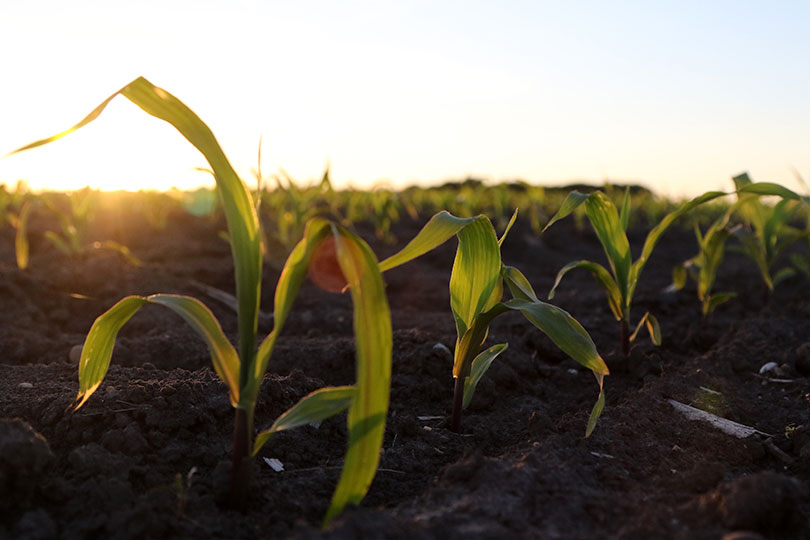By Jennifer Dorsett
Field Editor
Fertilizer is just one of many crop input costs farmers must balance when growing crops, but rising phosphate fertilizer prices due to a dispute between foreign and domestic fertilizer producers has many farmers concerned.
Current tensions began when the Mosaic Company, the largest U.S. phosphate fertilizer producer, petitioned the U.S. Department of Commerce in June 2020 to investigate whether Moroccan and Russian phosphate fertilizer producers were receiving unfair subsidies.
In the petition, Mosaic alleged the “large volumes of unfairly subsidized imports are causing significant harm” to the company’s U.S. operations.
“A lot of farmers will recognize that a consistent supply of American-produced crop nutrients is in their best interest, especially when you consider that we at Mosaic represent nearly half of the phosphate that gets applied in the U.S. every year,” Ben Pratt, senior vice president for Government and Public Affairs at Mosaic, said in an interview with Agri-Pulse. “Unfair competition from other players would effectively take us out of the market. The costs for farmers’ inputs down the road would be much higher.”
After accepting the petition, the Commerce Department announced it would initiate countervailing duty (CVD) investigations into the matter.
In the announcement, the agency said if it found the allegations were substantiated, “and if the U.S. International Trade Commission (ITC) determines that unfairly subsidized U.S. imports of phosphate fertilizers from Morocco and/or Russia materially injure, or threaten material injury to, the U.S. industry,” the Commerce Department would impose duties on those imports “in the amount of unfair subsidization found to exist.”
In 2019, the U.S. imported 2.04 million metric tons of phosphate fertilizer worth $729.4 million from Morocco and 767,288 metric tons totaling $299.4 million from Russia, according to the U.S. Department of Commerce. Together, these nations represent about 75 percent of U.S. fertilizer imports.
Several U.S. senators, including Texas Sen. John Cornyn, sent a letter urging the Commerce Department to deny the petition, saying a decrease in fertilizer demand and higher stocks drove fertilizer prices down in 2019, but any imposition of duties by the department would cause higher input costs for farmers.
“The decrease in fertilizer prices, which has been driven down by market forces, has been helpful to U.S. farmers and does not warrant investigation into the market by imposing duties that will have long-term consequences,” the letter concluded.
American Farm Bureau Federation (AFBF) also sent a letter to Lisa Barton, secretary to the U.S. International Trade Commission, saying any countervailing duties on phosphate fertilizer imports could represent a big increase to agricultural production costs.
“Fertilizer costs account for approximately 15 percent of total cash costs in the U.S. Since phosphorus accounts for 20 percent of fertilizer usage, that means about 3 percent of total cash costs can be attributed to phosphorus,” Paul Schlegel, AFBF vice president of Public Affairs, wrote. “Certainly, a significant increase in phosphorus costs would be felt in farmers’ bottom line.”
The Commerce Department announced affirmative preliminary determinations in these investigations in November, leading to preliminary duties of 23.46 percent on imports from Morocco and 20.94 to 72.5 percent on certain Russian imports, depending upon the producer.
But the senators’ and AFBF’s fears had already come true.
Moroccan fertilizer company OCP Group, a state-owned phosphate manufacturer, stopped shipping phosphate to the U.S. after the Commerce Department accepted Mosaic’s petition in late June, according to subsidiary company OCP North America’s CEO Kerry McNamara. He said phosphate fertilizer prices have risen about 26 percent since then.
“We think this is really unfortunate,” McNamara told Agri-Pulse. “We’re concerned about its impact on American farmers, who have told us clearly that they want and rely on diverse supplies, and we’re happy to be a part of that. U.S. farmers have seen a significant rise in their costs—in prices of fertilizers—because of a lack of inputs from OCP. The last thing that farmers should have to worry about is a diminished fertilizer supply.”
A final decision in the investigation is not expected until April.
“We’re watching this situation closely,” Brant Wilbourn, Texas Farm Bureau associate director of Commodity and Regulatory Activities, said. “Texas farmers need crop input tools like fertilizer to remain affordable and accessible, so any major impacts to that industry are obviously of concern to us. We want a fair playing field for domestic fertilizer companies, but we don’t want to see farmers get the short end of the stick in this dispute, either.”

